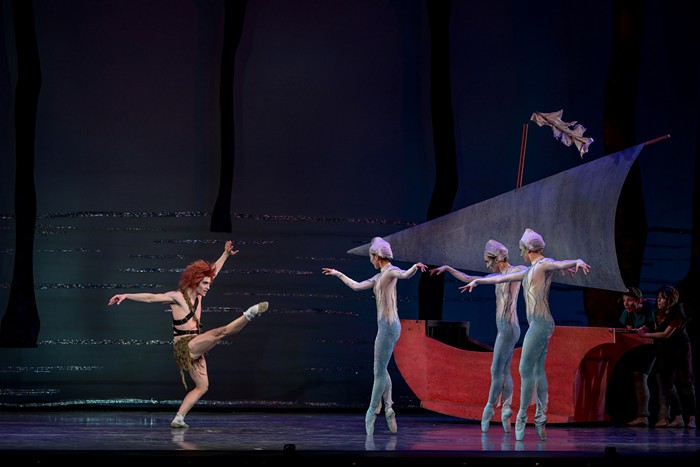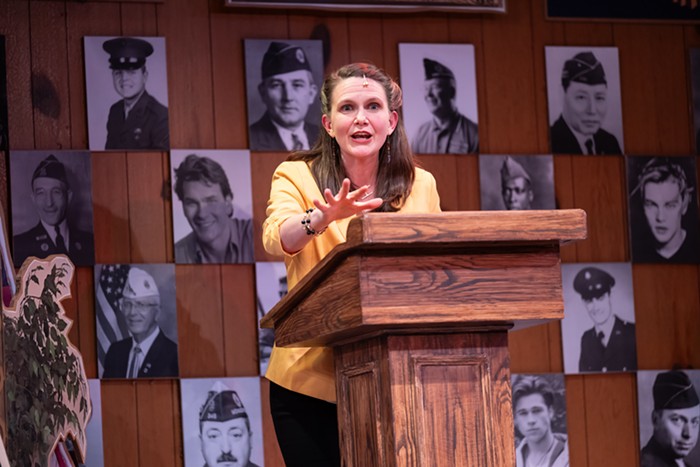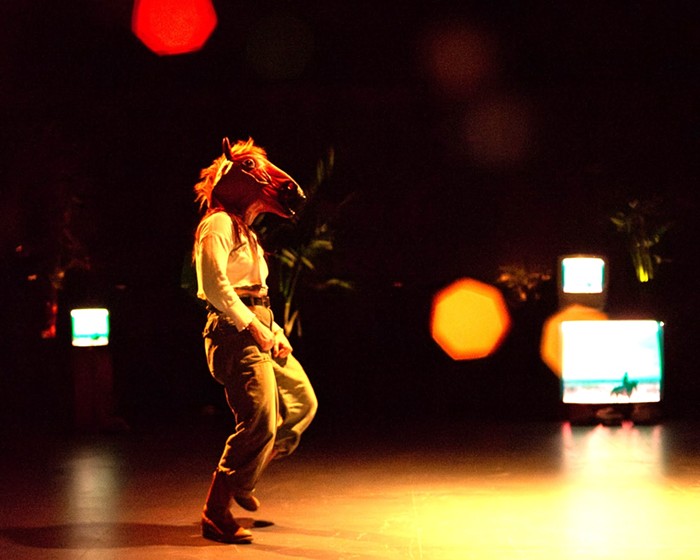
Broke Gravy is ready to get back to performing.
Consisting of Eric Simons, Leon Anderson, and Chris Williams, the improv trio has been on pause with the rest of the world, though they’re making their triumphant return to the stage at Curious Comedy Theater for a New Year's Eve Eve show on December 30.
They will also be performing with three guest storytellers: Portland State University Professor Nishat Akhtar, mental health therapist Angela Zahas, and adventure enthusiast Denise Peña. You can buy tickets here.
As they describe themselves on their website, Broke Gravy seeks to “use improv comedy, storytelling, and podcasting to discover truth between the blurry lines of the daily grind.”
“As three Black Americans, we utilize our unique voices to spark thoughtful conversations on and off comedy stages,” the description continues. “Through a candid dialogue, we exchange our experiences with those of our audience—exploring deeper perspectives on comedy, relationships, and humanity. Also, we're funny AF.”
I recently got the chance to talk with all three. During our conversation, they shared their endless wit and wisdom, bouncing off each other effortlessly. This also included an appropriate level of roasting of me as I had my Zoom name listed as my nickname, Hutch, which is the shortened version of my last name, Hutchinson.
“I do want to point out that you have an old Black man’s name. Hutch, what?” Chris said with Leon laughing along. “I swear to God, my grandpa’s best friend in Mississippi was named Hutch so I’m not just going to let that slide.”
Beyond this playful ribbing, the three also reflected on how they view their craft, the persistent homogeneity of improv comedy, and how their group came to be.
“The nuts and bolts of the way that we got together was, I had met Chris ten years ago in a workshop and it was the first time that we had gotten to improvise together,” Leon said. “We both did this little scene where we were two Black magicians and we were like ‘This was fucking fun!’ We need to do this again.’”
The duo later became a trio when Eric joined in on the fun.
“Some mutual friends of ours said ‘Hey, Eric is moving to town, you should meet up with him, he's a great guy,’” Leon said. “It was a great conversation.”
The collaboration was a strong one, and allowed for the three to get deeper in their performances.
“Up until that point, I had performed with maybe one other Black individual at the same time,” Leon said. “There are certain nuances of being the only of your kind, being a token on stage, that creates a lot of discomfort. This was my opportunity to perform with people and dive deeper into the Black experience. Get beyond just being Black, but getting into that ‘I’m an engineer with a Jamaican background.’”
That also meant not having to worry about being singled out on stage.
“We can talk about slavery on stage without it being like ‘Oh shit, are they going to make me the slave in this right now?’” Leon said. “Eric and Chris, whether they admit it or not, are amazing performers. It was a no-brainer.”
“I will not return that compliment,” Eric joked. “But, like Leon was saying, you are often that kind of outsider. I mean, improv tends to be pretty straight, white, male.”
Chris puts it in terms that are both humorous and serious.
“It’s the hockey of the entertainment industry,” Chris said. “It’s also not a joke, it’s a real thing. You just have to do extra work, brain power, just to maintain the minimum. When you’re on stage with everyone, your mind is having to work harder just to keep yourself kind of stable in that environment.”
“I avoided doing any kind of virtual improvising during that time. It’s like using a screwdriver as a hammer—it’s not the right tool.”
Eric said the fact they were able to work together so well was creatively freeing, a regrettably uncommon experience.
“When you’re the female on stage, the Black person on stage, the Asian person on stage, the LGBTQIA on stage, even at your most free you still have at least a little bit in the back of your head that’s defense,” Eric said. “[You’re] waiting to have to flip something to not make you the butt of the joke or the outsider. Suddenly, to not have that, was weird. It was great, but it was such a strange feeling.”
That means that there were also moments of good comedy that have been lost.
“These were ways that we should have been able to be creative that if people were on their shit, they’d see how much the groups we were a part of could actually be,” Eric said.
The group working together has paid off in making for good shows that Leon says resonate with audiences.
“The response that we’ve gotten from audiences generally doesn’t have to do with our race in any way. The response is ‘Holy shit, you all are so connected!’” Leon said. “They’re just fully invested. The doper dope response is when we do have a person of color in the audience whose response is ‘I’ve never seen a Black person improvise. I didn’t think this was something Black people did.’”
Leon said that this was not a question of untalented Black improvisers who he said have been “improvising since the beginning of spoken language.” Instead, it is simply a question of access to stages.
As for how Broke Gravy is feeling about getting back on a stage of their own for their first show together in more than a year, they are excited to perform for an audience beyond their own homes.
“I’m chomping at the bit to get back on stage. As much as I love performing for my daughter, she doesn’t get all my jokes,” Eric quipped.
The group does have a podcast, and Leon said they had considered doing more frequent virtual shows at the early stage of the pandemic, though it was far from the same experience as in-person.
“There is something about not having a digital lag. There is something about being able to see each other. Right now, I can see the three of you but I don’t know if you’re looking at me,” Leon said. “I avoided doing any kind of virtual improvising during that time. It’s like using a screwdriver as a hammer—it’s not the right tool.”
That was seconded by Eric and Chris who expressed how there’s just something unique about live improv comedy.
“There is an energy that exists at a live comedy show, but especially a live improv show, that’s really hard to emulate digitally,” Eric said. “There are these little moments where everyone realizes something at the same time in a way that can’t be written or can’t be reproduced. It just happens instantaneously and it’s like a little secret that everyone there gets to be a part of. It just doesn’t work with four squares and a lag.”
“It doesn’t translate, doesn’t translate at all,” Chris said. “This is a totally different game in-person.”
The group is looking forward to making full use of that in-person experience, as well as building off the three storytellers.
“It’s a community-builder, everyone is welcome,” Chris said. “We’re going to be inspired by those stories and then we’re just gonna chop it up on stage after each story is told. I’m the most excited about seeing people in the audience, listening to laughter, and talking to folks in the moment.”
“It’s a party.”


















